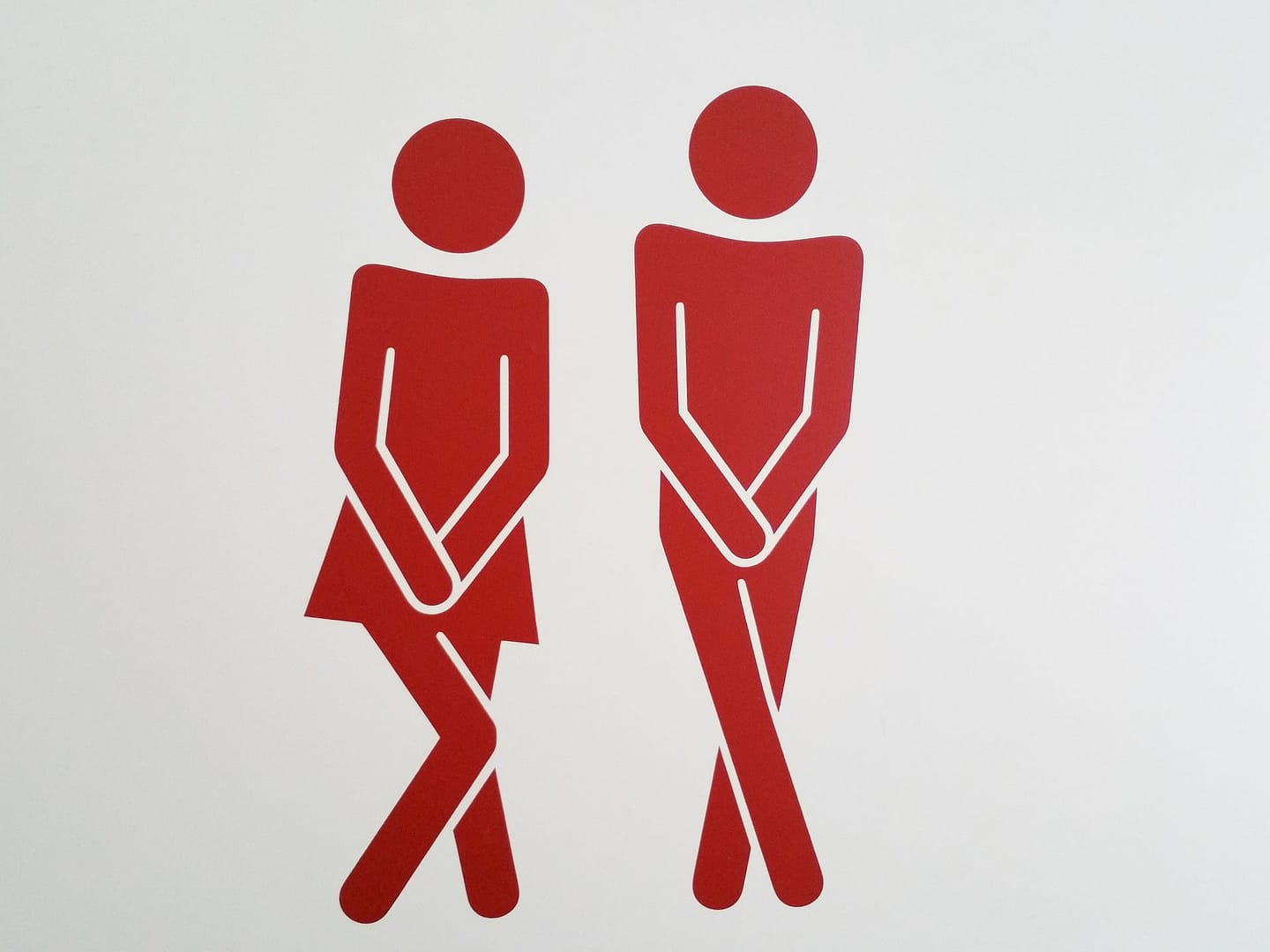No, we haven’t gone all Scottish vernacular here, enquiring as to whether you have a small problem; basically, we’re talking bladder control.
As we age, it’s not uncommon for both men and women to experience changes in bladder function – changes such as difficulty “holding it in”, the occasional leak, and an increased number of times you’re racing for the loo – not least at night-time.
Left unchecked, these issues can have really negative effects on our feelings of well-being; there’s the embarrassment and shame we might go through if we have an accident in a public or social setting. And this can lead to feelings of anxiety, depression and low self-esteem, and make us feel we need to withdraw from social situations, which in itself, can make us lonely and isolated.
Then there’s the disturbance to our sleep: Frequent trips to the loo at night, or the fear of wetting the bed, can disrupt our sleep patterns leading to sleep disturbances. Lack of restful sleep, meanwhile, can further exacerbate any feelings of fatigue, irritability and low mood.
What’s the cause?
In the short term, urinary incontinence can happen for many reasons, including urinary tract infections, vaginal infection or irritation, or even constipation. Also, some medications can cause bladder control problems that affect us in the short time. When incontinence lasts longer, it could be down to a number of different factors:
- Weak bladder or weak pelvic floor muscles
- Over-active bladder muscles
- Damage to nerves that control the bladder from diseases such as multiple sclerosis, diabetes or Parkinson’s disease
- Diseases such as arthritis that may simply make it too difficult and painful to get to the loo in time
- Pelvic organ prolapse (more common in women than men) when pelvic organs – such as the bladder, rectum, or uterus – shift out of their normal place and into the vagina or anus. When pelvic organs are out of place, the bladder and urethra are not able to work normally, which may cause urine to leak.
- Male incontinence may be caused by prostatitis, a painful inflammation of the prostate gland, or something known as benign prostate hyperplasia where the prostate grows as the man ages, or from injured or damaged nerves or muscles following surgery
So what can be done to help?
If the above sounds all too familiar, we strongly advise that you make an appointment to see your GP so you can explore the treatment options – healthcare professionals can provide guidance, support, and appropriate treatments and interventions to help manage – and hopefully alleviate – the symptoms of weak bladder control.
Other helpful strategies
– Pelvic floor exercises: Like any other muscles in our body, the more we use our pelvic floor muscles, the stronger they become. Located between the tailbone (coccyx) and the pubic bone within the pelvis, strengthening them can really enhance bladder control. Also known as Kegel exercises – which involve contracting and relaxing the muscles used to control urination – can be done every day, and easily worked in to your other daily routines such as brushing your teeth or having a shower. A healthcare professional or physiotherapist can guide you on how to perform these exercises correctly, plus there are some very good videos on the internet – simply search for “Youtube Pelvic Floor Exercises”.
Fluid management: Think carefully about your fluid intake, and not least before bedtime. Limiting fluids in the evening may help you reduce those debilitating night-time trips to the bathroom. However, ensure to drink enough throughout the day to stay properly hydrated – the simple test here is to check that when you do pee, it’s the colour of pale straw and no darker.
Bladder training: Literally, you’re training your bladder to hold urine for longer by gradually increasing the time between visits to the loo. But gradual is the key word here – if you need to go, you need to go!
Medications: In some cases, medications may be prescribed to manage overactive bladder or urinary incontinence. A healthcare professional such as urologist (who you may be refered to by your GP) can determine if this is an appropriate option for you, and discuss the potential benefits and side effects.
Lifestyle modifications: Certain lifestyle changes may well help to make a real difference; these include maintaining a healthy weight, avoiding bladder irritants such as nicotine, caffeine and alcohol, and practising good toilet habits (e.g., fully emptying the bladder when urinating).
Have you suffered from weak bladder control, but have now done something to improve things? Then please do share your experience with us in our comments section below – your input could really help others going through it right now.
Do you have a comment or story to share relating to this article? Simply scroll down below – we really value your input.
To join in the conversation & comment you need to log in here or create an acount using the button below.



0 Comments